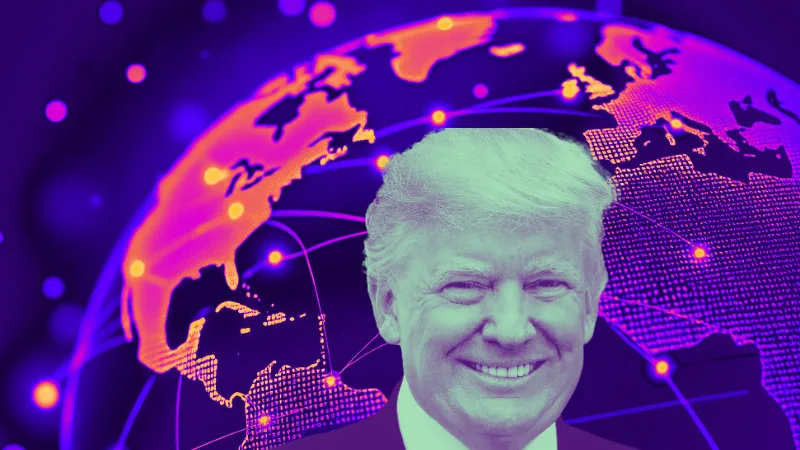As the 2024 U.S. presidential election approaches, the potential for Donald Trump’s return to office raises significant questions for a variety of industries. One of the most intriguing perspectives to consider is how Trump’s potential victory could impact Elon Musk, the entrepreneur behind companies such as Tesla, SpaceX, and Twitter (X). Here, we delve into the key reasons why a Trump presidency may pose challenges for Musk and his business ventures.
1. Regulatory Environment and Policy Shifts
Trump has historically championed policies favoring traditional energy sources, particularly fossil fuels. During his administration from 2017 to 2021, he rolled back over 100 environmental regulations, a move that supported oil and gas industries (source). If re-elected, Trump’s focus could pivot away from the green energy incentives that have significantly benefited Tesla. The potential reduction in tax credits and subsidies for electric vehicles (EVs) would challenge Tesla’s market momentum and overall appeal.
Quote to consider: “The rollback of environmental policies could slow down the adoption of electric vehicles, making it tougher for Tesla to maintain its leadership position,” noted John Smith, an analyst at the Clean Energy Institute.
2. Trade Policies and Supply Chain Impacts
During Trump’s previous term, his administration imposed tariffs on Chinese imports, sparking a trade war that had wide-reaching effects on industries reliant on global supply chains. Tesla’s extensive manufacturing footprint in China and reliance on parts from international suppliers make it vulnerable to any renewed trade disputes. An increase in tariffs or new trade restrictions could escalate production costs and disrupt Tesla’s operational efficiency.
3. Focus on Traditional Infrastructure
Trump’s policy initiatives have often focused on infrastructure that boosts traditional industries, including construction and fossil fuel pipelines. Under another Trump presidency, federal funding could shift toward these priorities rather than investments in advanced technologies like autonomous driving and renewable energy—areas central to Musk’s vision.
Example: Under Trump’s 2018 infrastructure plan, much of the focus was on traditional projects, which did not directly support the renewable energy sector (source).
4. SpaceX and National Security Concerns
While SpaceX has secured numerous government contracts, including partnerships with NASA, a renewed Trump administration may change the dynamics within the defense and aerospace sectors. Trump’s potential preference for more traditional defense contractors could impact SpaceX’s access to key projects. Additionally, any shifts in defense policy could limit certain international partnerships or commercial space projects.
5. Public Perception and Personal Dynamics
Musk’s public image and relationships with influential figures could also be a factor. Trump’s reputation for publicly criticizing or praising business leaders has the potential to affect stock prices and public sentiment. A volatile relationship between Trump and Musk—exacerbated by disagreements on policies—could lead to unpredictable consequences for Musk’s ventures.
Quote to consider: “The public endorsements or criticisms from Trump could sway investor sentiment, as we’ve seen happen with other business leaders,” remarked economic strategist Angela Davis.
6. Antitrust Scrutiny on Big Tech
Another aspect to consider is the regulatory scrutiny on large tech companies. Although Musk’s Twitter (X) operates differently than typical tech giants like Meta or Google, its acquisition and free speech policies have been under close watch. A Trump administration could potentially bolster antitrust efforts aimed at controlling perceived monopolistic practices in tech, which may indirectly affect Musk’s operations.
Example: During Trump’s term, he had frequent clashes with tech companies over issues of free speech and antitrust concerns.
7. Shift in Federal Priorities
A Trump presidency would likely bring a reallocation of government resources. While the Biden administration has emphasized green energy and EV growth through grants and tax credits, Trump’s policies would likely favor traditional energy and manufacturing. This shift could reduce opportunities for growth within Tesla and similar ventures.
Supporting insight: “A shift back to fossil fuel support would hurt industries that rely on green incentives, potentially stalling innovations,” stated renewable energy consultant Maria Perez.
8. Global EV Market Implications
Finally, the U.S.’s stance on renewable energy and green technology has global implications. If the U.S. shifts away from supporting electric vehicles, international competitors, particularly in Europe and Asia, may seize the opportunity to outpace Tesla in market growth and innovation.
Conclusion
While Elon Musk’s vision and influence extend far beyond the U.S., the policies of an American president can significantly impact his business interests. From trade policies and environmental regulations to federal funding and public perception, Trump’s return to office could bring a challenging landscape for Musk’s ventures. Understanding these potential shifts allows stakeholders to prepare for possible changes in the regulatory and economic environment.





